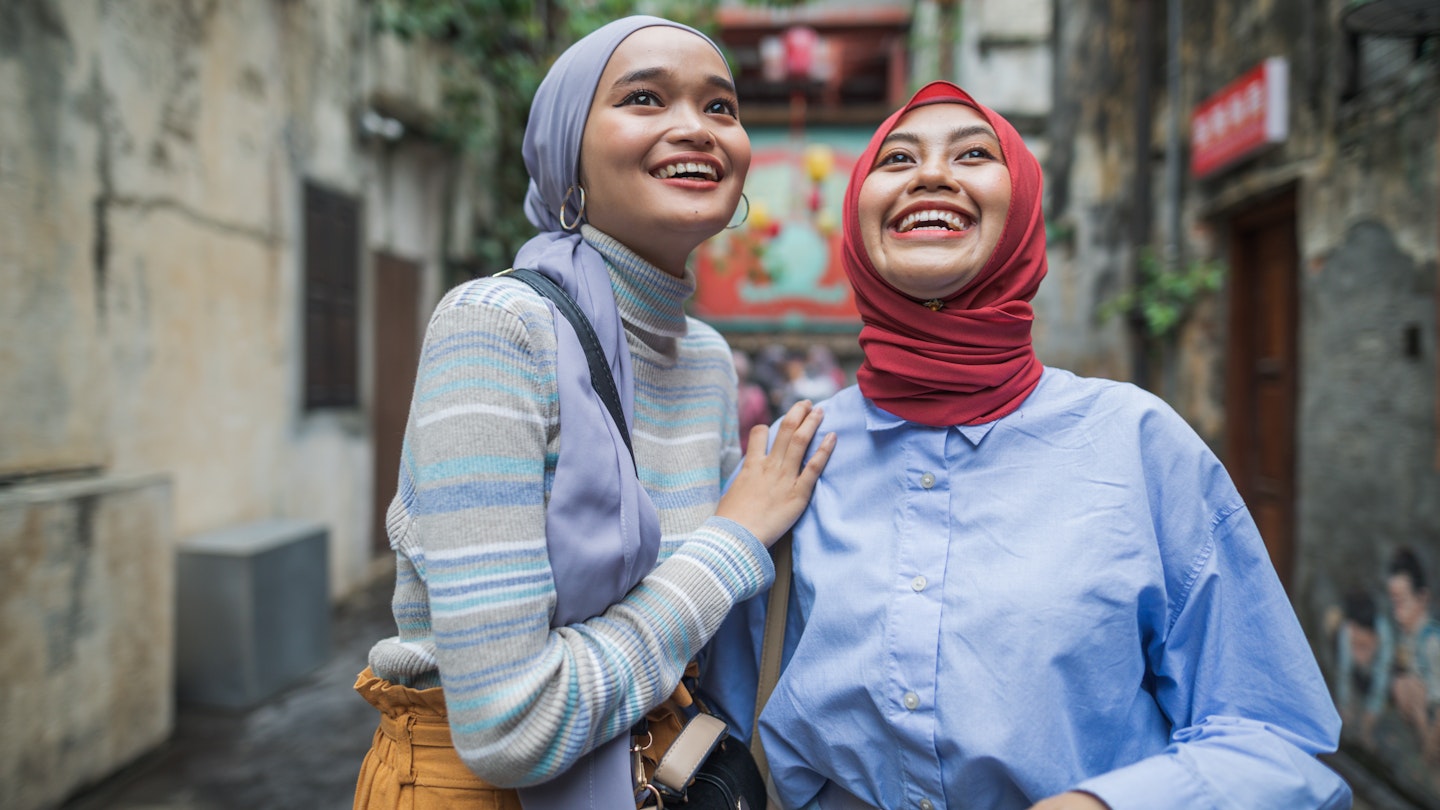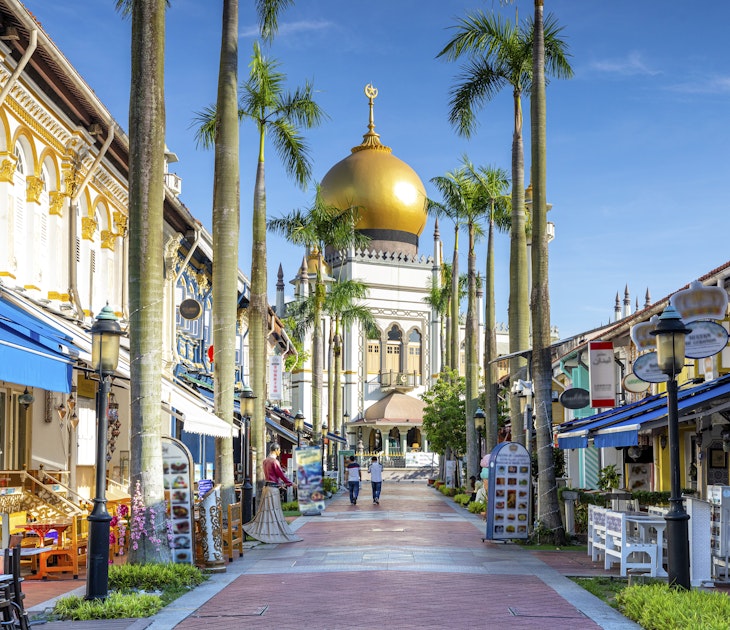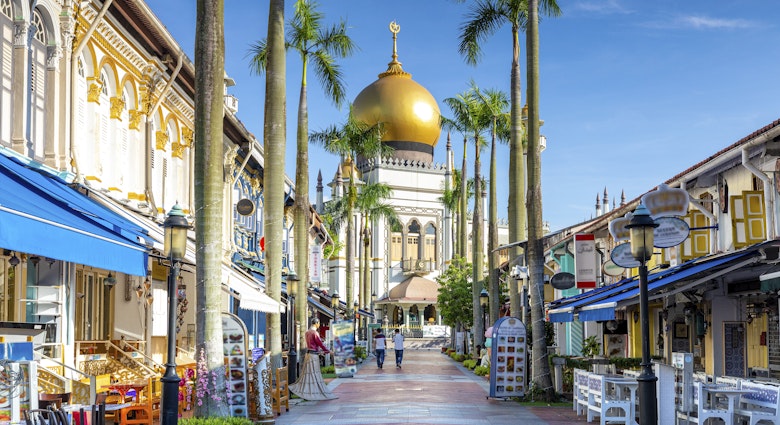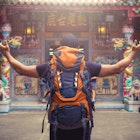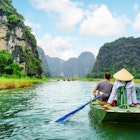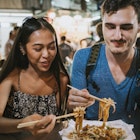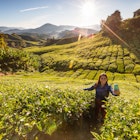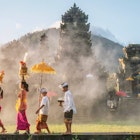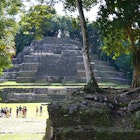Dynamic, multi-cultural, and hugely underrated, Malaysia is Southeast Asia's unsung tropical hero. Marrying tradition, nature and modernity, it's a country of space-age cityscapes, Islamic minarets and gilded Chinese shrines. It's a world where South Indian temples back onto million-year-old rainforests, and this mish-mash can confuse first-timers.
From what to pack to navigating the nation's ethnic and religious tapestry, these are the top things to know before you embark on a trip to Malaysia – an experience that can often feel like being in several countries at once.
1. Malaysia is a dazzlingly diverse country
Be prepared for many types of culture shock. In multi-ethnic yet predominantly Islamic Peninsular Malaysia, a 69.8% majority of Malay Muslims share the land with ethnic Chinese, Tamil Indians and a dozen aboriginal groups categorized as orang asli (original peoples). This means that red lantern-studded Chinese temples sit next to Hindu gopurams (temple gates) and the onion-shaped domes of intricate, modern mosques. Prayers go up to the sky in three main languages – Bahasa Malaysia, Mandarin, and Tamil – and to three main religions: Islam, Chinese Taoism and Hinduism.
A short flight away across the South China Sea, the East Malaysian states of Sarawak and Sabah in Borneo feel like another world. The former has some 26 different ethnic groups, most of whom are Christian or Protestant, while Sabah is home to another 33 who communicate in over 50 languages and 80 dialects.
2. Pack for an eternal summer – but carry a light jacket
Tropical Malaysia enjoys steamy temperatures hovering around 86°F (30°C) year-round. All you really need to pack are light, loose-fitting cotton clothes to best cope with heat and humidity, and a pair of sneakers and flip-flops. If you forget anything, you can pick it up here. Also pack a hoodie or light jacket to prepare for the Malaysian habit of keeping air conditioning to frosty levels, especially inside shopping malls, buses and trains.
3. Technology is widely available…
Kuala Lumpur must be one of the world's most futuristic cities, with ever-expanding highways, towers and skyscrapers eternally contending for space. Beyond the capital, there's excellent 4G mobile network coverage and fast wifi at most hotels and guest houses across the nation. Celcom is the best operator when traveling the Peninsula's jungly interior and Borneo.
4. …but carry cash in the interior
ATMS (cashpoints) are widely available but thin out in the countryside, and they are often hard to find outside of Borneo's main cities. Stock up on the local currency, the Malaysian ringgit, if planning to go off the grid.
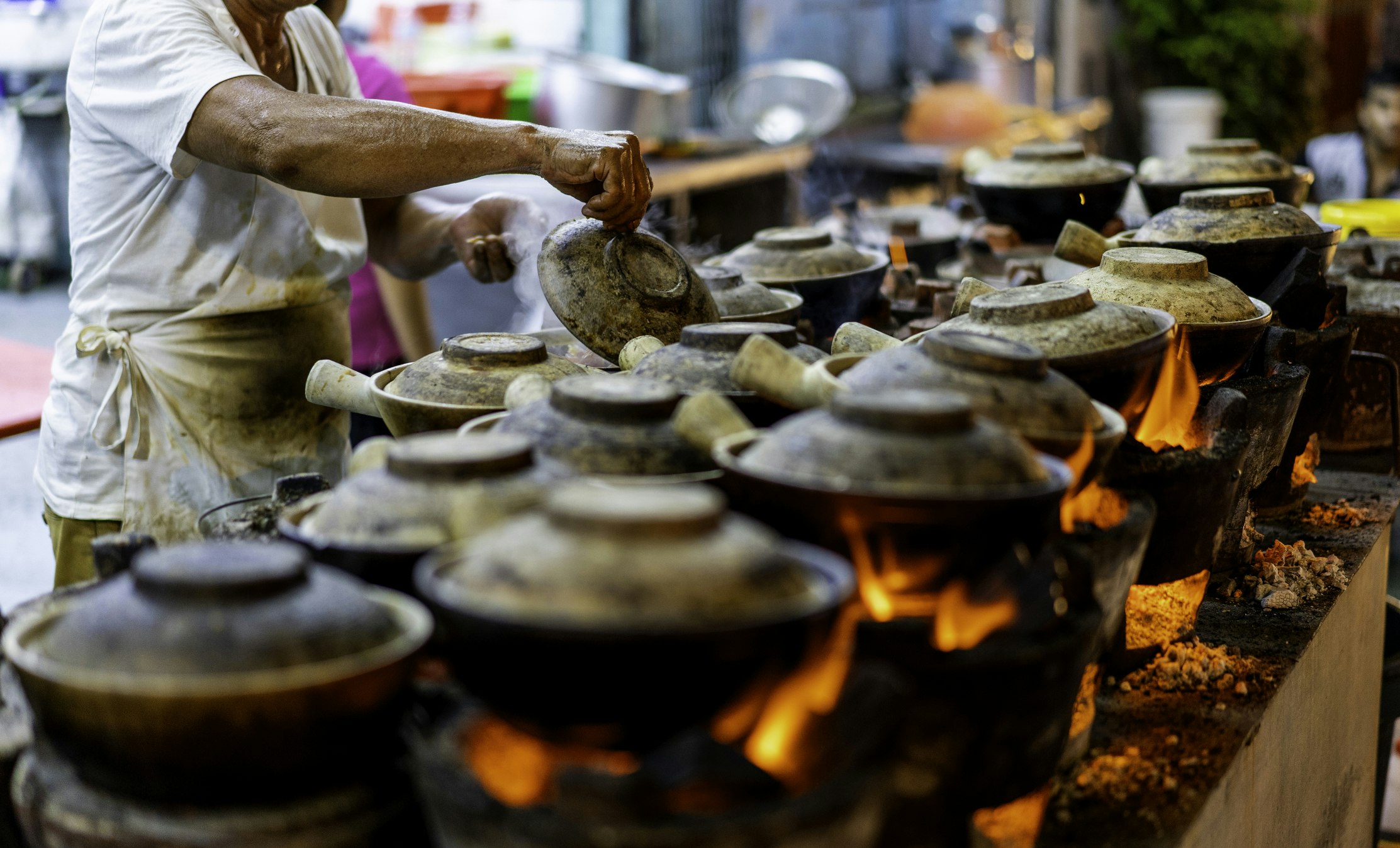
5. The food is something to write home about
The delightfully spicy intricacies of Malaysian food (a concoction of curries, southern Chinese cuisines and pan-Indian dishes that never stop intermarrying) are best consumed fresh off the street, served without embellishments by local "uncles" – slang for older person – on plastic plates.
The alternative is to sit and rub elbows with locals at a food court, or "hawker center" – large open areas, usually covered by a rooftop, packed with simple food stalls squeezed one against the other.
6. Partying is a bit more expensive
Compared to its backpacker-centric Southeast Asian neighbors Thailand, Cambodia and Vietnam, Malaysia is a more expensive party destination because of heavy taxes on alcohol, which is forbidden to Muslims. The rest of the population is free to drink but forced to pay a higher price.
Alcohol is widely available in major tourist cities like Kuala Lumpur, George Town, Ipoh, Melaka and Johor Bahru, while in smaller towns, beer is most often available at Chinese-run businesses. The best antidote to steep drinks and cigarette prices is a visit to the tax-free islands of Langkawi and Tioman.
7. Dress casual but modest
Due to the constant heat, Malaysia's dress code is very casual. Wearing short pants, sandals, flip-flops and t-shirts is the accepted norm everywhere but is considered rude when visiting public offices, where long slacks, close-toed shoes and collared shirts are expected. In Malaysia's many kampung (villages), avoid revealing outfits to comply with local religious sensibilities.
Modesty is also essential when choosing your beachwear. Bikinis and speedos are fine at big hotels, resorts and the tourist islands off the East Coast, such as Pulau Perhentian and Pulau Redang. But it's best to wear one-piece bathing suits and knee-length swimming trunks on any other beach, where the locals dip fully clothed.
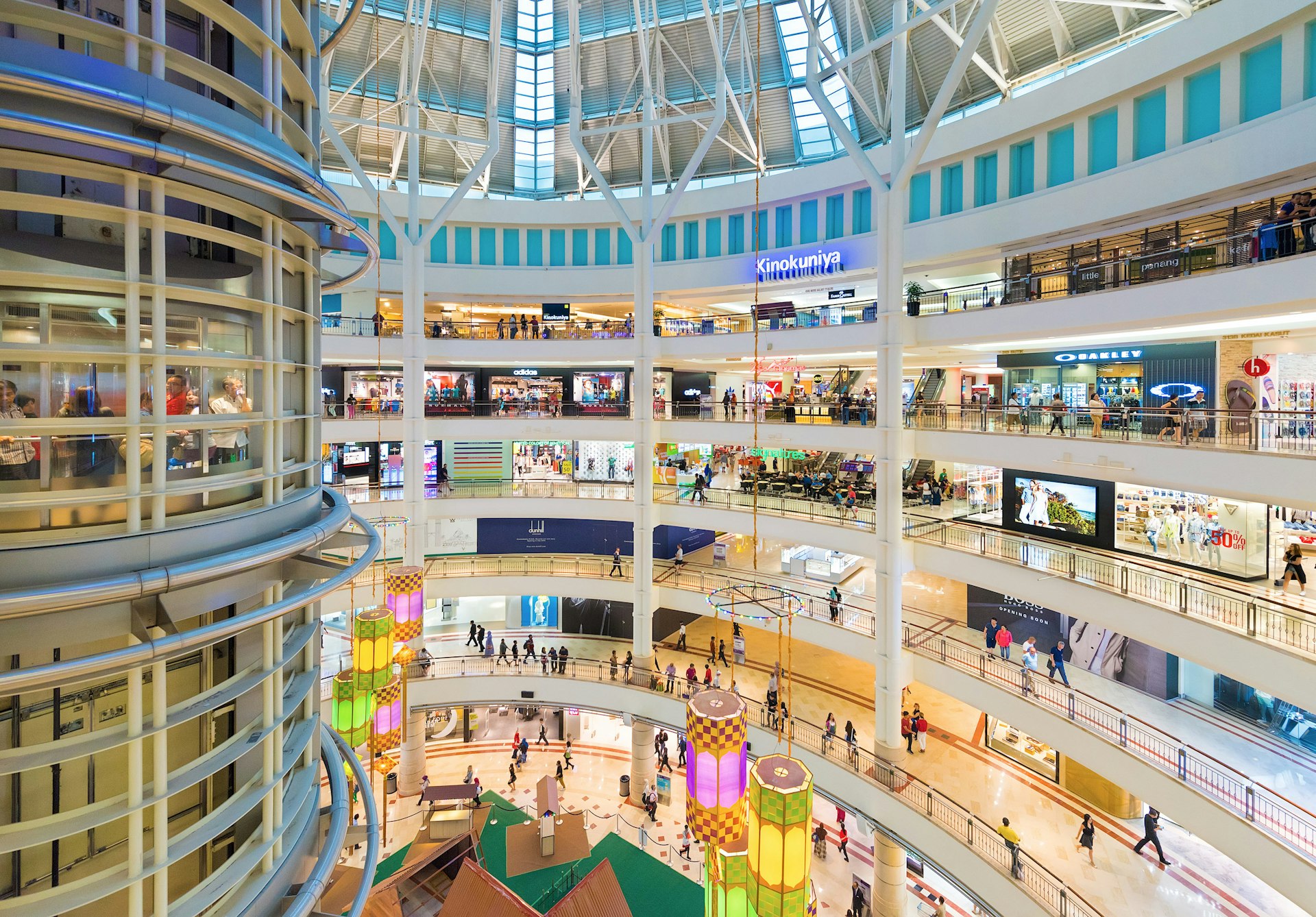
8. It's OK to speak in English if you don't know Malay
Picking up some survival Bahasa Malaysia (Malay language), the national lingo, is pretty straightforward – with its Roman alphabet and absence of tones, it's one of the easiest Asian languages to learn. But it's fine to speak English, especially with Malaysian Chinese and Indians, whose mother tongues are not Malay. Blame it on the British colonization, but practically everyone can communicate in English, and most prefer to do so when talking to foreigners.
9. You might be unknowingly rude
When pointing at someone or something, use the thumb and not the index finger, which is considered rude in Malaysia. Always keep your voice down, for raising the tone is an absolute no-no – like asking direct questions, which many Malaysians may take as "losing face" or an invasion of their personal space.
When shaking hands, always remember to use your right hand, for the left is considered "toilet hand" in any Islamic culture. The only dining etiquette that matters in Malaysia is to never use the left hand when trying to eat with fingers like many locals do.
10. Respect nature, and its spirits
When a bunch of foreign tourists bared their bottoms on top of Mount Kinabalu in 2015, enraged Kadazan-Dusun locals blamed their act for the consequent magnitude 5.9 earthquake that killed at least 16 and snapped one of the sacred mountain top's two iconic "Donkey Ear" outcrops.
The animist beliefs that predate the arrival of Islam to the Malay Peninsula have helped foster a highly regarded supernatural world in which nature plays a crucial role. For example, it's common to "ask for permission" before urinating in the jungle, from where locals never bring anything back for fear of piggybacking a curse into their own homes.
Whenever a group enters a forest, it's best to give out nicknames or not call out each other at all – spirits are always listening. The orang bunian (invisible forest-dwelling creatures comparable to elves) can trick hikers and campers into following them deep into the jungle to never be seen again.
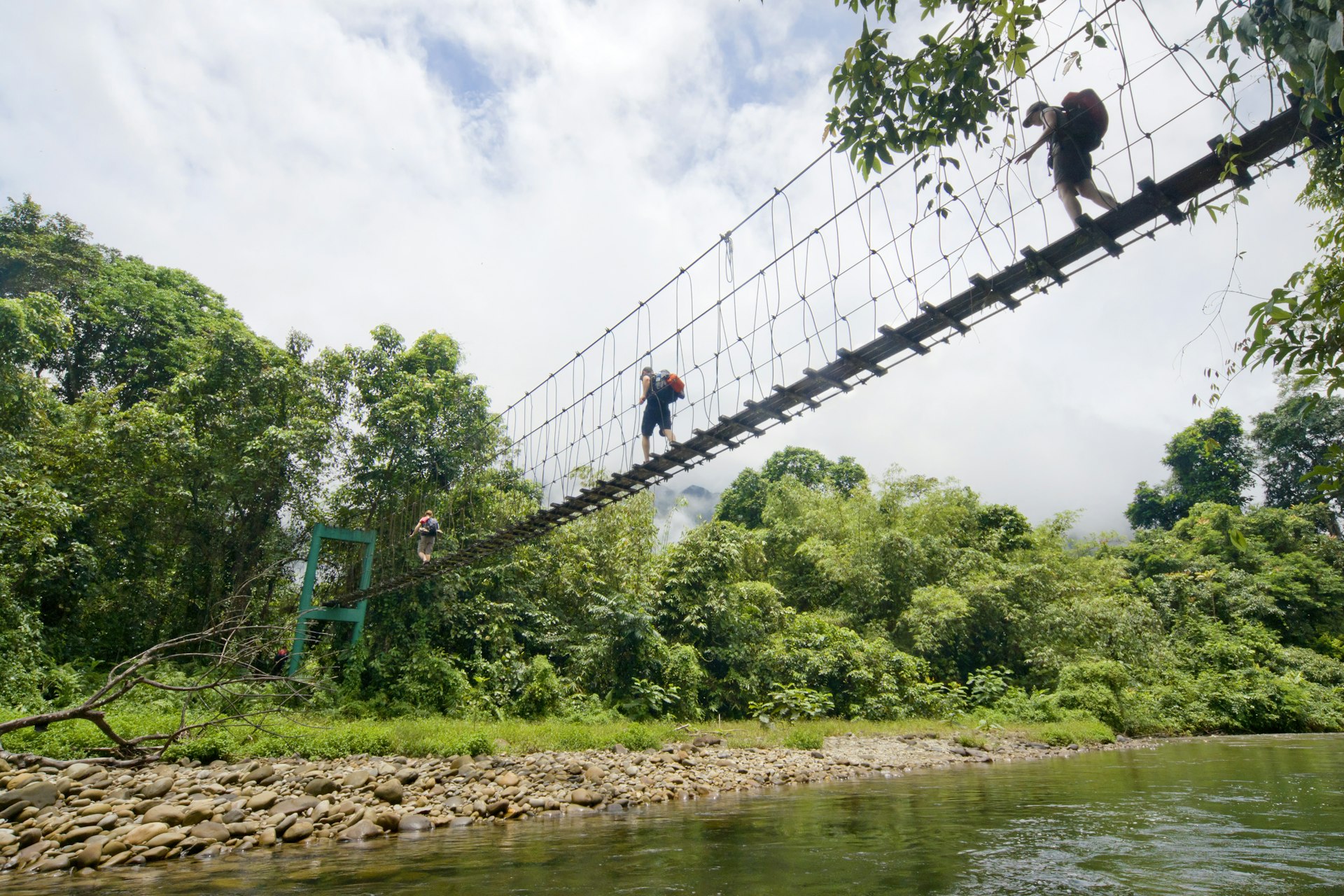
11. Call 999 for any emergency
A single three-digit number, 999, connects to the police, the fire department, the ministry of health, the maritime enforcement agency and the Department of Civil Defence. Dial 999 112 if calling from a mobile phone.
12. Boil the tap water
Because of increasing pollution of water sources and aging buildings fitted with rusted pipes, it's always best to boil tap water before drinking, or buy mineral water. Most hotels allow guests to refill their water containers. Carrying a water filtration system or purifying tablets can come in handy when striking out on multi-day hikes.
13. Vaccines are recommended
It is advisable to travel to Malaysia after being inoculated against Hepatitis A, Tetanus and Typhoid. Malaria is generally not an issue in cities and most forested areas, so a prophylaxis is not strictly necessary. Dengue fever occurs sporadically in cities, but as there are no vaccines for it, the best strategy is to not get bitten by mosquitoes – use heavy-duty insect repellent.
Malaysia is one of Asia's top medical tourism destinations and boasts private hospitals equipped with excellent facilities. Make sure to have proper health insurance coverage, or be ready to pay for the premium.
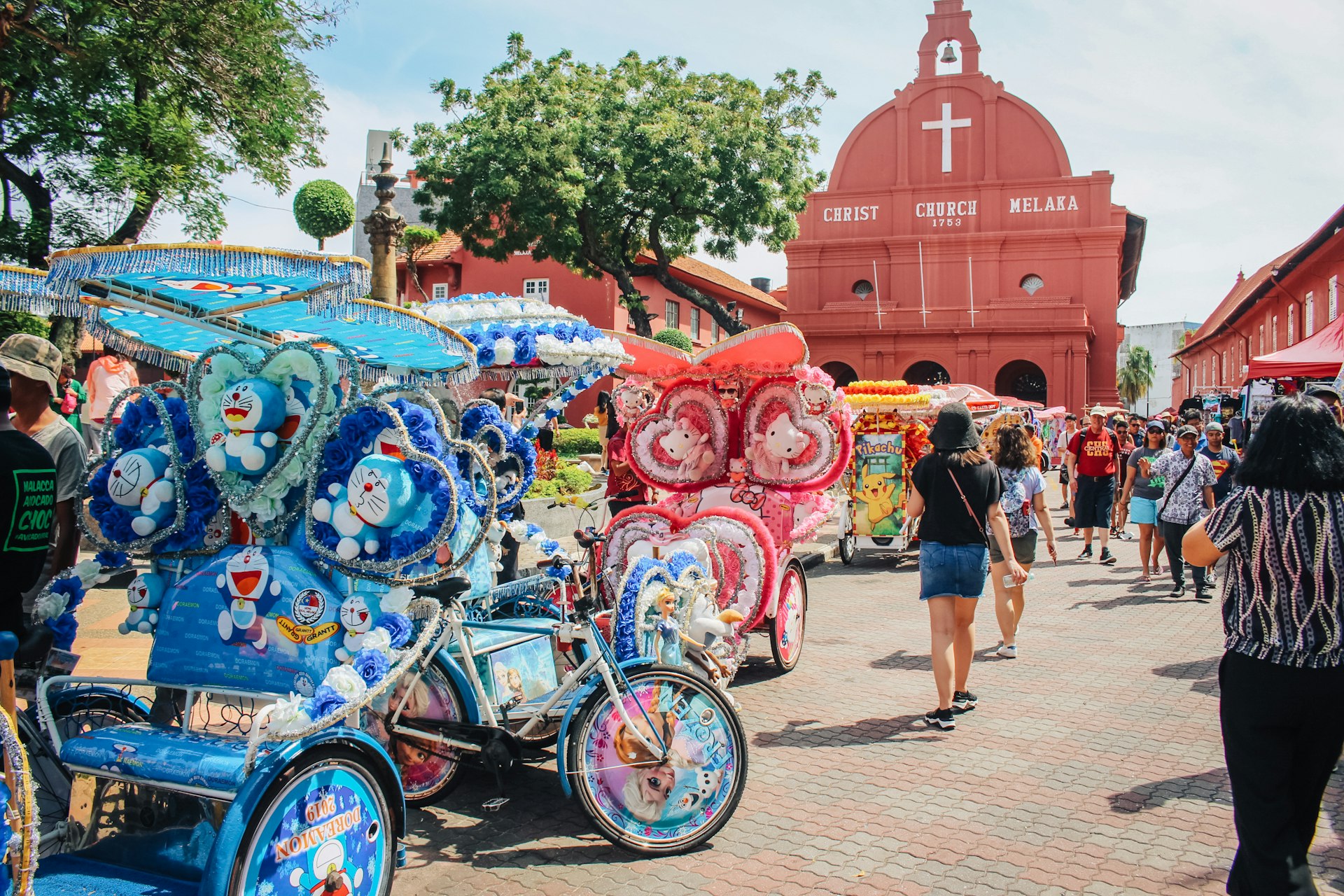
14. Beware of snatch thieves
Traveling in Malaysia is generally a pretty safe experience for travelers of both sexes, but whether they travel solo or in groups, female travelers should pay attention when walking along the busiest roads of capital Kuala Lumpur – keep your bags away from the roadside, for motorbike snatch thieves are well-known to target women, and some attacks have resulted in a victim's death.
15. How to travel safely for LGBTQI+ travelers
While a 2021 court ruling suggests change may be afoot, same-sex relationships are not only taboo in Malaysia, they're banned by federal law. For the LGBTQI+ communities here, the golden rule is to avoid publicizing relationships. In fact, public displays of affection are frowned upon in Malaysia in general, no matter your sexual orientation.
16. Drug offenses can get you to the gallows
Stay away from drugs in Malaysia, where 200g of cannabis, 15g of morphine or heroin, and 40g of cocaine mean a death sentence. Offenders are shaken down extremely hard or jailed even for carrying much less.

